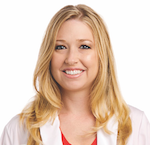Even for the top medical school students in the country, an otolaryngology residency is one of the most difficult specialties to land, and nearly 40% of applicants don’t match. Last year, 574 highly qualified applicants competed for one of 341 openings. That left 233 aspiring otolaryngologists without a residency in their chosen field. After four years of hard work and big student loans for many, what happens to these students?
Explore This Issue
August 2022“It’s an extremely challenging situation to work through, partly because there are so many more unmatched applicants in recent years,” said Steven Pletcher, MD, residency program director at the University of California, San Francisco.
While in the past it may have been somewhat taboo to talk about not matching, now there’s more of a general acceptance that a high number of highly qualified otolaryngology applicants each year will go unmatched. As medical schools have increased the number of students they accept, residency programs—funded largely by Medicare and Medicaid—have not kept pace.
Supplemental Offer and Acceptance Program
Medical students who don’t match receive notification on the Monday before Match Day. They then have the option of applying to a program in a different specialty that has unfilled spots through a process called the Supplemental Offer and Acceptance Program (SOAP).
“This obviously means a major change of plans for a future career,” said Marilene B. Wang, MD, a head and neck surgeon and professor in the department of head and neck surgery at the David Geffen School of Medicine at the University of California, Los Angeles.
Under these circumstances, students will look at specialties that hadn’t necessarily been on their radar. They may plan to apply again to otolaryngology while doing a transitional program, such as a year of surgical residency, or otolaryngology-related research. Or they may end up really enjoying the other specialty they match into through SOAP and choose to continue to pursue it.
Medical students put more pressure on themselves than most groups. When they hear from those close to them that they are loved and supported regardless, it’s one of the first and most important steps of moving forward. —Dana Crosby, MD, MPH
Osama Hamdi, MD, a current otolaryngology resident at the University of Colorado in Aurora (CU), went unmatched the first time he applied to otolaryngology programs; he applied to the SOAP but had second thoughts and quickly withdrew his application. “I was still passionate about otolaryngology and wanted to give it one more shot so that I didn’t live with regrets,” he said.
